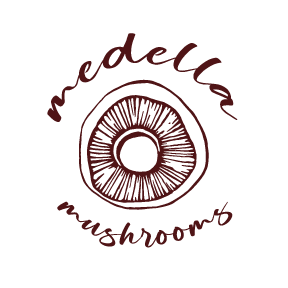Mushrooms have been a staple food for thousands of years, and their popularity continues to grow as people discover the incredible health benefits that they offer. Not only are mushrooms a delicious and versatile addition to any meal, but they are also packed with essential nutrients that can help to promote overall health and well-being. In this blog, we will explore some of the key health benefits of mushrooms and explain why it is important to incorporate them into your diet.
One of the most well-known health benefits of mushrooms is their immune-boosting properties. Mushrooms are rich in beta-glucans, which are complex polysaccharides that help to activate the immune system. Studies have shown that beta-glucans can help to stimulate the production of immune cells, increase the activity of natural killer cells, and enhance the body's ability to fight off infections and diseases.
In addition to their immune-boosting properties, mushrooms are also a great source of antioxidants. Antioxidants are compounds that help to protect the body against oxidative stress, which can lead to chronic diseases such as cancer, heart disease, and Alzheimer's disease. Mushrooms contain a variety of antioxidants, including ergothioneine, which has been shown to have potent antioxidant properties.
Another important health benefit of mushrooms is their ability to support heart health. Mushrooms are a great source of fiber, which can help to lower cholesterol levels and reduce the risk of heart disease. They also contain compounds called sterols, which can help to block the absorption of cholesterol in the body. Additionally, mushrooms are rich in potassium, which can help to regulate blood pressure and reduce the risk of heart disease.
Mushrooms are also an excellent source of vitamin D, which is essential for strong bones and a healthy immune system. While most vitamin D is obtained through exposure to sunlight, mushrooms are one of the few dietary sources of this important nutrient. In fact, studies have shown that mushrooms that have been exposed to ultraviolet light can contain levels of vitamin D that are comparable to those found in fortified milk.
In addition to their many health benefits, mushrooms are also incredibly versatile and can be used in a wide variety of dishes. From soups and stews to salads and sandwiches, mushrooms can add flavor, texture, and nutrition to any meal. They can be sautéed, grilled, roasted, or even eaten raw, making them a convenient and easy-to-use ingredient.
Despite their many benefits, mushrooms are often overlooked as a dietary staple. Many people are unfamiliar with the wide variety of mushrooms available and may not know how to prepare them. However, incorporating mushrooms into your diet is easier than you might think. Start by trying different types of mushrooms and experimenting with different cooking methods. Mushrooms can be found fresh or dried, and can be purchased at most grocery stores and farmers markets.
In conclusion, mushrooms are an incredibly nutritious and versatile food that offer a wide range of health benefits. From their immune-boosting properties to their ability to support heart health and promote strong bones, mushrooms are a valuable addition to any diet. By incorporating mushrooms into your meals, you can enjoy their delicious flavor and reap the many health benefits that they offer. So why not try adding some mushrooms to your next meal and see for yourself how these amazing fungi can benefit your health and well-being.

